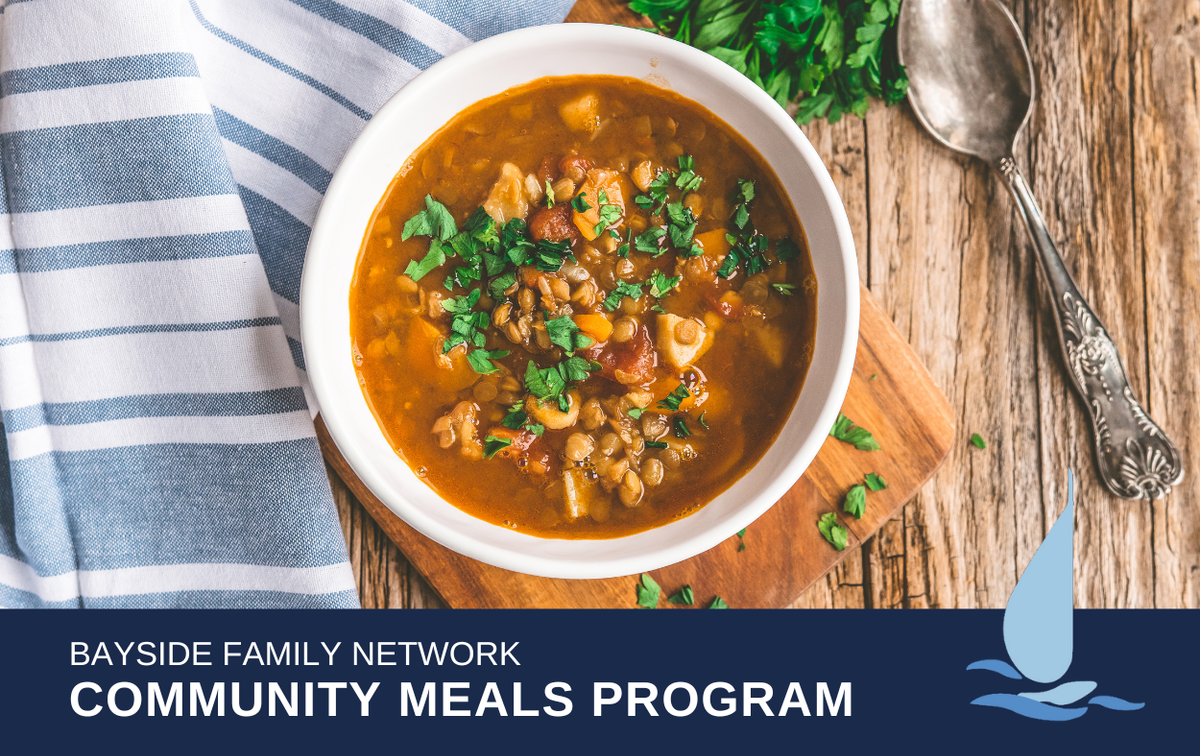Bayside Family Network

From the Chaplain
In this busy world, one of the things that we can really struggle with is taking the time to sit and listen. As the Chaplain at Bayside, I have had countless conversations with students and parents alike. One of the frustrations that I hear most of all is when either party feels misheard or misunderstood.
For myself, I find it hard to sit still if I have a lot on my mind and a huge list of things to do. However, when I stopped and took the 5 minutes it needed to hear what someone is saying to me, I found that the frustrations that I was feeling were halved.
I read an article by on the Unicef Website that spoke on ways to communicate effectively with your child. Here is what it said:
Every interaction you have with your child is a form of communication. It's not just about the words you say: The tone of your voice, the look in your eyes and the hugs and kisses you give – all convey messages to your child. The way you communicate with your child not only teaches them how to communicate with others, it shapes their emotional development and how they build relationships later in life.
What are the types of communication?
Communication can take two forms: verbal and nonverbal.
Verbal communication is the way we communicate with words and includes:
- Pitch and tone of voice
- The words you say
- Dialect, or using words your child can best understand.
Nonverbal communication is both intentional and unintentional communication through body language. It includes things like:
- Facial expressions
- Eye contact
- Personal space
- Hand gestures
- Physical touch like a hug
Try these nine tips to practice your verbal and nonverbal communication skills:
1. Active listening
Listening actively helps children to feel heard and understood. By using gestures such as encouraging smiles and affirming nods you can show that you are engaged with what your child is saying and really care. Getting down to the same eye level as your child as they speak to you can help them feel safer and more connected to you.
Show that you are listening intently to what they have to say by asking them questions like “what?” “why?” and “how?”. This also helps your child to improve their own communication skills by teaching them how to tell a story and what details to include.
2. Reflective listening
A great way to show your child that you are paying attention and care about what they have to say is by acting like a mirror. Repeat back what they say to you using different words. For example, if your child says, “I’m not playing with Marco anymore,” you could respond with, “You are not playing with your friend?”. This leaves room for your child to express their emotions without judgment. You might be surprised at how much they have to say!
3. Speaking clearly
Use language that is understandable for your child and appropriate to their age. Be clear, specific and do not use derogatory words. Using kind language helps set a positive example for your children. Remember, the conversation should make your little one feel respected and loved.
4. Avoiding bribes
Offering rewards such as candy for basic behaviours may feel like they give you short-term control, but they do not allow you to develop clear boundaries and can lead to distrust between you and your child. Try to set clear and realistic expectations about what you would like your child to do, praise good behaviour when you see it, and use calm consequences to encourage better behaviour when needed.
How to discipline your child the smart and healthy way
5. Explaining feelings
To help your child develop emotional intelligence, it is important for them to learn how to name their feelings. When your child is expressing their feelings verbally, listen to what they have to say with empathy and without judgment. Consider what life looks like through their eyes. If your little one is expressing their feelings in a nonverbal way – for example through a temper tantrum or laughing and having fun doing an activity they enjoy – help them put words to how they feel, such as happy, sad, relaxed, hurt, scared, hungry, proud, sleepy, angry, helpless, irritated, embarrassed or joyful.
6. Using ‘noticing’ statements
When you praise your child for specific actions, it helps them to feel good about themselves and lets them know what behaviours you like. Instead of saying “good job!” try being more specific with a ‘noticing statement’: “I noticed that you put all of your toys away after playtime. Nice work!”
7. Having fun together
As your children grow, parenting can seem like a more serious task. That’s why it is all the more important to have fun together and enjoy lighthearted conversation – it’s a great way to strengthen your relationship! Find ways to relate to your child by saying something positive about something they care about, paying attention to their interests and joking together. Remember, laugh with your child but never at your child.
8. Focusing on behaviour
If you are upset with your child about something, make sure that your criticism and comments are directed at their behaviour and not at them as a person. For example, instead of “I don’t like that you are messy” try “I don’t like it when you leave your clothes all over the floor.”
9. Leading by example
Consider what example you are setting. Parents are children’s introduction to the world. What your child sees you do is as important as what they hear you say. Only make a promise to your child that you are sure you can keep. This helps to build and maintain trust between you and your children.
Remember, leading with kindness and love is always the way to go when bonding and communicating with your child!
You can find this article and other great parenting advice by clicking this link: https://www.unicef.org/parenting/
Bless you,
Ps. Kathy Scott
College Chaplain
Community Meals Program
As part of the Bayside Family Network's community outreach, we have an abundance of frozen meals available in the deep freezer in the Community Room. If you know of a family or member of the community who we can bless with some meals, please contact Pastor Kathy Scott via email or call College Reception.
Community Morning Tea
All parents, carers, staff and members of the Bayside community are invited to join the Bayside Family Network for morning tea on Wednesday 2 August from 9am-10am in the Primary G-Block foyer. Come along to enjoy light refreshments together and meet other parents within the College community. Children welcome!
Prayer Group
The Bayside Prayer Group meet every Monday morning from 9am in the Community Room (M2) to pray for the College. Parents, carers and staff are welcome to join at any time. The group also frequently meet at 7.30pm on Monday evenings to walk around the College grounds. For more information please contact Bek Shelling on 0403 804 972.
Community Playgroup
The Bayside Community Playgroup runs every Thursday from 9am to 10:30am for children aged 0-5 years for indoor play, craft, painting, creative play, story time and sing-a-long while parents and carers supervise playtime and enjoy a cuppa and light morning tea. Cost is $2 per child to attend each week. Please pack a nut-free snack and water bottle for your child. No booking required.
About the Network
The Bayside Family Network is the College community care and support arm of Bayside Christian College. Established in 2018, the Bayside Family Network engages with the College community to connect, build and support families. We do this by creating opportunities for parents/carers, staff and the broader College community to connect with one another and build solid relationships in a Christ-centred environment.
The Network currently provides care and support to both Bayside Christian College staff and families through the following programs:
- Prayer Group
- Playgroup Victoria
- Meals Program
- Educational Workshops
- Class Carer Support
- Uniform Exchange
The network is currently overseen by the College Chaplain Pastor Kathy Scott, and is supported by a group of committeed volunteer parents. Parent/carer participation is welcomed at Network events and with organisation.
Parent participation is a great way to play a more active role in your child’s education. There are a variety of ways to become involved, and many of the programs offered at Bayside Christian College require parental support. If you would like to learn more about ways you can be involved around the College, please email Lis O'Brien
Staff Profile: Pippa Scott
We asked Pippa, our school Wellbeing Dog some questions to get to know her. Here is what she answered.
Pippa Scott, Border Collie - Age 5 (nearly 6) which makes me 35 in dog years.
Where were you born?
I was born on a sheep farm in Western Victoria.
What do you do with your day when you are at school?
I spend most of the day in the Chaplain office . If people are feeling a bit sad, I try to help them by being available for a hug and a pat. I do like to get out and say hi to everyone at recess and lunch. I also love going on excursions and camps when I am allowed.
What is your favourite food?
Steak - especially if I am sharing it with my human.
What’s your favourite snack?
I like all snacks!But especially like when Mum makes dehydrated steak. What I don't like is vegetables.
What’s your favorite way to exercise?
Catching the ball at the park with my human and dog friends.
Do you have any hidden talents people don’t know about?
I can bounce a big soft ball off my nose so that people can play catch with me.
How do you like to spend your free time? Sleeping.
What are you obsessed with?
Well, being a Border Collie, I like to round up animals (and people) into a tight circle. I am obsessed with Chickens and Bunnies. If I had my way, I would love to just sit and stare at them all day long.





